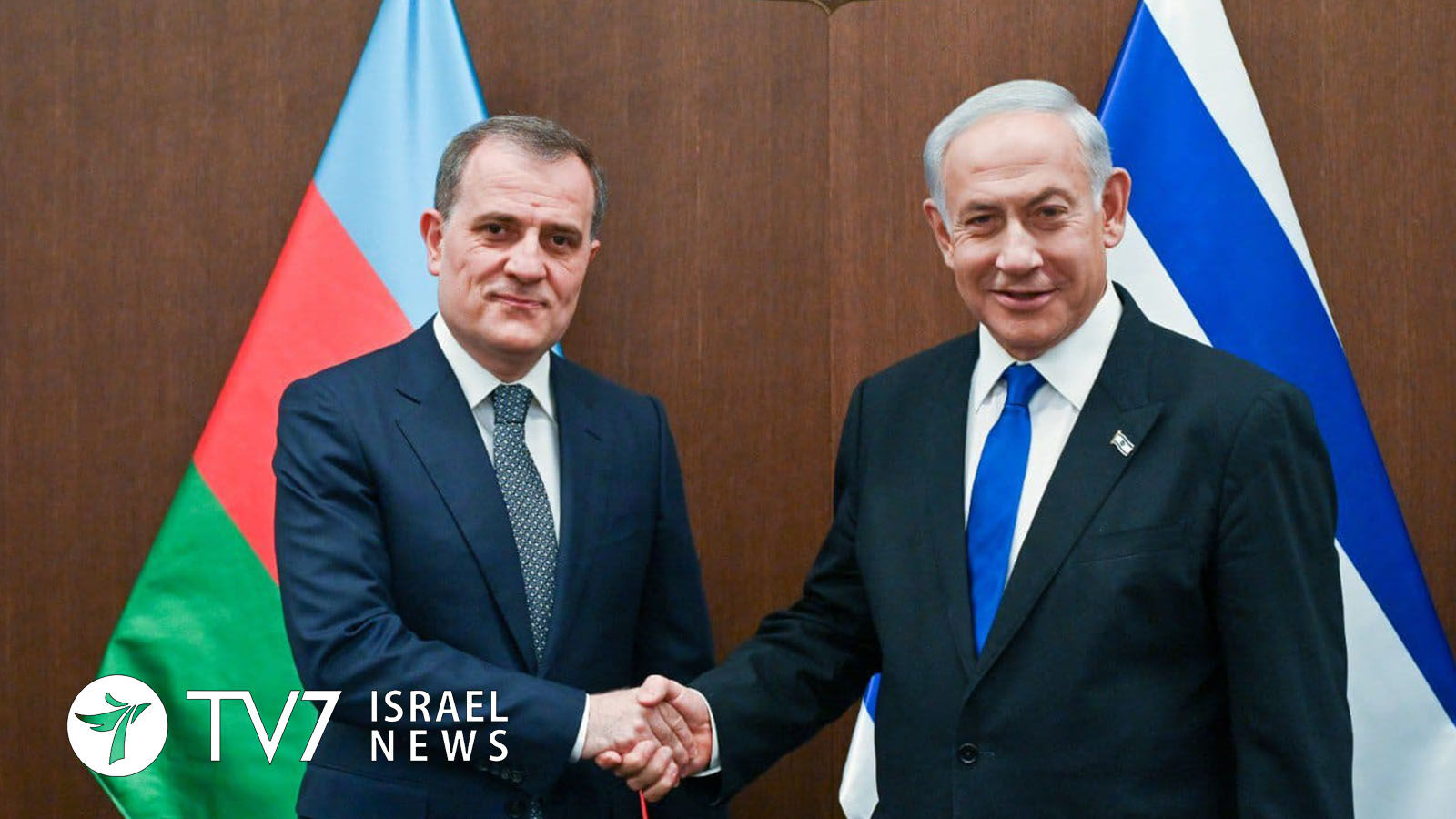The meetings come amid celebration of the opening of the first Azeri Embassy in Israel.
By Erin Viner
The two countries have maintained bilateral relations since 1991, after Israel was one of the first countries in the world to recognize the independence of Azerbaijan in December 1991.
While Israel opened an embassy there in 1993, Baku did not reciprocate until yesterday.
The development marks the first opening of an embassy by a Muslim-Shiite country in the Jewish State. Earlier this week, Azeri Ambassador Mukhtar Mamedov presented his credentials to Israeli President Isaac Herzog.
“The opening of the Azeri embassy in Israel is further evidence of the strengthening of relations between the countries. Azerbaijan is a Muslim country and its strategic location makes the relationship between us of great importance and great potential,” said Israeli Foreign Minister Eli Cohen, who hosted his Azeri counterpart Jayhon Bayermov at the festive ceremony.
The two foreign ministers emphasized the close coordination between the governments and rising strategic relations, as well as the advancement of bilateral cooperation in the economic, energy, education, academic, culture and sports sectors.
Jerusalem’s top diplomat also indicated he will make a diplomatic visit to Baku in the coming weeks as the head of an economic delegation, in order to continue deepening the commercial ties between the two countries.
According to a statement TV7 obtained from the Israeli Foreign Ministry, Cohen said he and Minister Bayramov also agreed “on forming a united front against Iran.”
There are escalating tensions between Azerbaijan and Iran. Azeri security officials are currently investigating the terrorist shooting on Tuesday night of Member of Parliament Fazil Mustafa, who holds strong anti-Iranian views. Mustafa, who in parliament leads a small opposition party that is seen as ultimately pro-government, has previously called Iran – which shares a Shi’ite Islamic majority faith with Azerbaijan – a “terrorist state.” He has also accused Tehran of trying to turn Azerbaijani religious pilgrims in Iran against the Baku authorities.
In January, Azerbaijan closed its embassy in Iran after head of security at the diplomatic compound was killed in what it said was a terror attack.
The issue of Iran also topped the agenda of talks Azeri Minister Bayermov held with Israeli Prime Minister Benjamin Netanyahu. “They discussed common regional security challenges and the threat Iran poses to regional stability,” said a statement from the Prime Minister’s Office.
Participating in the meeting were the Director of the National Security Council, the Prime Minister’s Chief of Staff, the Prime Minister’s Military Secretary, the Deputy Foreign Minister of Azerbaijan and the two countries’ ambassadors.
Azerbaijan is bordered to the south by the Islamic Republic of Iran, and it is widely believed that until now that Baku has held back from officially opening an embassy in part to avert angering Tehran. Rising tensions with the Islamic Republic, combined with establishment of Israel’s Abraham Accords with other Muslim states and restoration of relations with Turkey are seen as contributing factors in Baku’s decision.
Azerbaijan is home to one of the largest Jewish communities in the Muslim world, estimated to number between 12,000 – 18,000 people.
